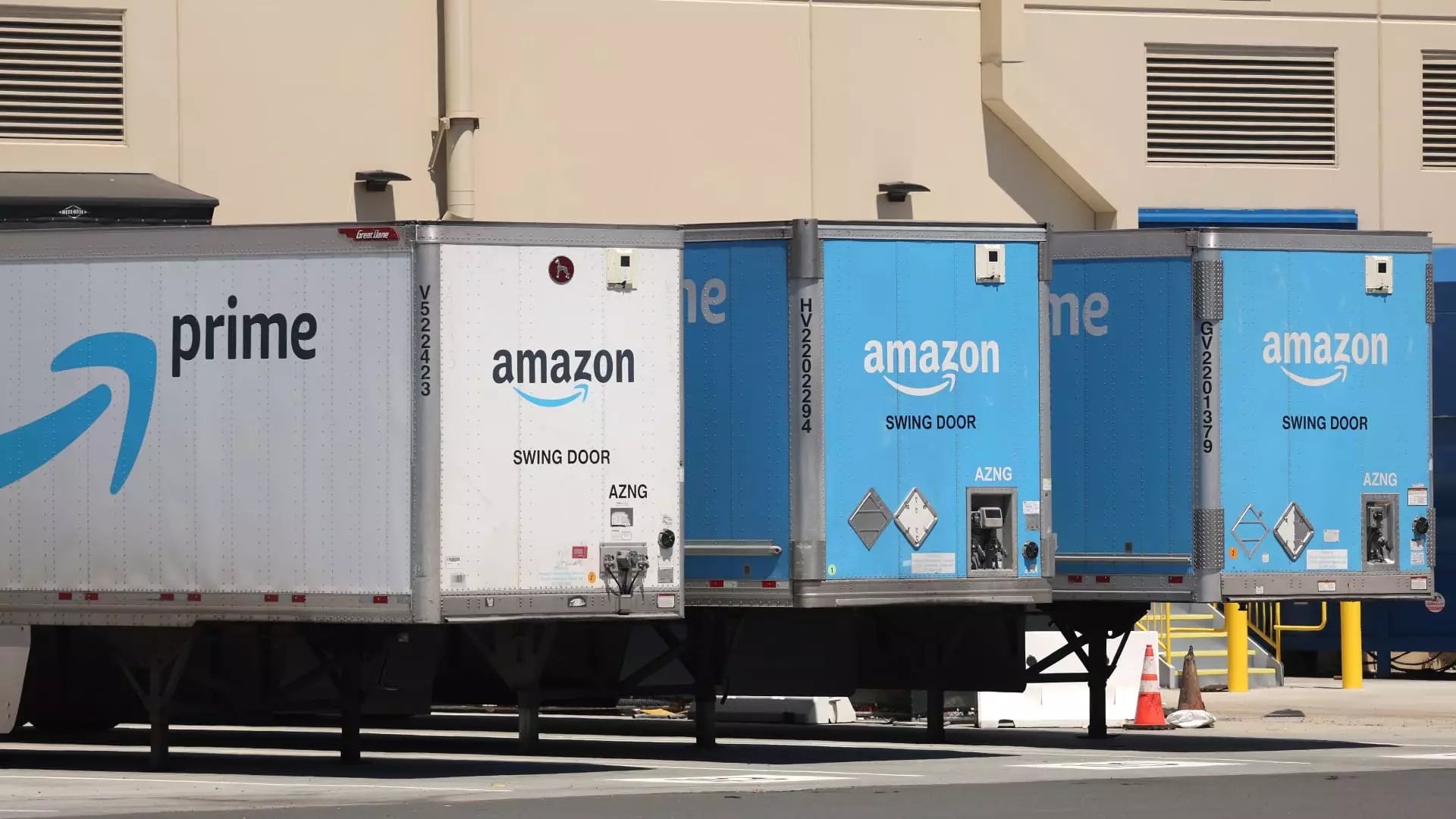The recent revelations from the Department of Justice regarding an Armenian organized crime ring involved in the theft of over $83 million in goods from Amazon is startling. This isn’t just a shocking headline; it’s a dismal reflection of the challenges facing the modern retail landscape. The tactics employed by these criminals—a blend of deception and painstakingly organized theft—highlight a glaring weakness in the logistics systems that are the backbone of e-commerce. When a company like Amazon faces such monumental losses, the question arises: how are we as a society failing to combat these insidious crimes that sap away both profits and consumer trust?
Cargo theft, commonly dismissed as a mere bump in the road for a retail giant, represents a much larger threat. Experts suggest that these losses could total close to $1 billion annually across the industry. This staggering figure indicates a systemic issue; it not only impacts companies financially but also disrupts the essential supply chain. The inevitable ripple effect can lead to increased prices and decreased availability for consumers, rendering lower-income households particularly vulnerable. Increasingly, the stakes are not just the bottom lines of corporations but the well-being of the everyday consumer.
The Flawed System Exposed
At the heart of this crime spree is a systemic flaw; the very mechanisms designed to streamline the delivery of goods are being exploited. The four transport carriers alleged to be involved—AK Transportation, NBA Holdings, Belman Transport, and Markos Transportation—expose inefficiencies within Amazon Relay and similar programs. The authorization system ostensibly intended to prevent fraud has shown itself to be a patchwork solution plagued with loopholes.
When honest truckers struggle to make a living while these “self-styled carriers” divert routes and falsify deliveries, the moral fabric of our logistical networks is stretched to its breaking point. These criminals manipulate the trust inherent within transport systems, ultimately preying on the very drivers we depend on to sustain the e-commerce ecosystem. How are we, as consumers and stakeholders, allowing our reliance on these systems to outpace the security needed to safeguard them?
The Human Toll of Crime
The consequences of organized crime extend well beyond monetary losses. The DOJ’s complaint linked the alleged thieves to other heinous activities, including attempted murder and even kidnapping. This paints a bleak picture: our marketplaces are not just being robbed; they are being tainted by violence and intimidation that endangers innocent lives and tarnishes local communities.
We must ask ourselves what kind of society we want to cultivate. Is it one where crime runs rampant and perpetrators capitalize on the vulnerabilities of our systems? Or do we stand up, insisting on a robust conversation about legislation, ethics, and public safety? Tackling this menace isn’t just a corporate responsibility; it is a pressing social imperative.
Corporate Responsibility: Amazon at the Forefront
Amazon is certainly not the sole entity dealing with this troubling trend, yet its involvement underscores the pressing need for corporate accountability. The retail giant has ramped up its measures to combat fraudulent practices, yet many small vendors allege that they are falling victim to these same schemes while attempting to make an honest living. The question arises: how can we ensure that the measures implemented do not compromise the very small businesses that are crucial to our economy?
An ideal solution would not only stem the tide of cargo theft but also empower less affluent sellers to thrive in a challenging marketplace. This is a delicate balance that must be struck to foster an environment where integrity, security, and entrepreneurship can coexist.
The Future of Retail is At Stake
As consumers and citizens, we cannot afford to ignore how deeply organized crime infiltrates the channels through which we receive goods. It’s high time to rethink how we address security in these transactions, advocating for innovations that promote authenticity and accountability. The future of retail, with its sprawling web of logistics and supply chains, is contingent on our collective ability to stand against the forces that threaten to undermine it.
As we navigate this rocky terrain, let’s ensure that we do not lose sight of our values in the pursuit of convenience. E-commerce is undeniably changing our lives, but we must engage critically with the structures that are in place to support it. Networking for justice cannot be an afterthought; it must be a priority as we seek to reclaim our shared public spaces from nefarious influence.

